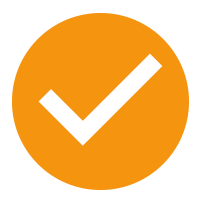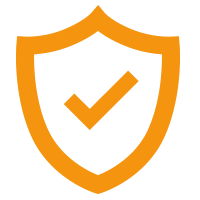
Digital workplace sovereignty.
Vendor lock-in, data protection, security vulnerabilities—factors like these are making it increasingly obvious that independence in the digital world is crucial both for the public sector and private enterprises. Control over data, technologies and infrastructures along with associated data protection, IT security, technology and vendor independence are central pillars of digital sovereignty. The public sector in particular is facing substantial issues also as a result of the European General Data Protection Regulation (GDPR). The solution? Sovereign workplaces based on open source applications that promotes open digital standards. Bechtle combines technical expertise and its extensive experience of public-sector requirements with a targeted strategic and conceptual approach.
Send us a message and our experts will be in touch.

Autonomy.
Open source solutions are an alternative to well-known software vendors and give public sector customers and businesses more choice enabling better compliance with the GDPR.

Resilience.
Open source solutions can help boost resilience in the face of disruptions and minimise threats through transparency, fast response capabilities and an open source code.

Modern way of working.
A lack of skilled workers and other customer, citizen and employee demands are forcing a rethink of who things get done and digital sovereignty provides modern, secure and scalable solutions.

Modern way of working.
A lack of skilled workers and other customer, citizen and employee demands are forcing a rethink of who things get done and digital sovereignty provides modern, secure and scalable solutions.

-
-
Flexibility in the sovereign workplace.
-
Being largely dependent on individual technology providers can result in losing control of your IT and put data sovereignty at risk, making it more difficult to comply with legal requirements or respond quickly to, for example, plug security vulnerabilities or implement programs developed in-house. Open source applications can help organisations, public-sector clients and businesses do all of those things by ensuring data sovereignty and boosting the resilience of the solutions they use, helping them regain control of their infrastructure and applications and minimising their dependence on individual providers.
Digital sovereignty means enabling businesses, organisations and individuals to enjoy greater autonomy over their digital assets and data and the sovereign workplace does exactly that. Using open source applications, businesses and organisations don’t have to worry about vendor lock-ins. When a sovereign workplace is designed and integrated in accordance with existing needs, the result is agile, unfettered and secure working that complies with statutory requirements such as the EU GDPR.
-
-
Flexibility in the sovereign workplace.
-
Being largely dependent on individual technology providers can result in losing control of your IT and put data sovereignty at risk, making it more difficult to comply with legal requirements or respond quickly to, for example, plug security vulnerabilities or implement programs developed in-house. Open source applications can help organisations, public-sector clients and businesses do all of those things by ensuring data sovereignty and boosting the resilience of the solutions they use, helping them regain control of their infrastructure and applications and minimising their dependence on individual providers.


Business Manager Modern Workplace
Challenges posed by statutory requirements, the modern world of work, but also the demand for greater independence can be overcome with a sovereign workplace, but it’s crucial to take a strategic approach that covers all perspectives. What’s more, the optimum concept can positively impact resilience.
Already discovered the perfect working model for your company? 100% office based, fully remote or something in between? There often isn’t a one-size-fits-all solution as teams tend to be diverse with correspondingly wide-ranging requirements,
Companies generate and use huge volumes of data from classic enterprise applications such as ERP and file systems, but also modern, digital applications including sensor-based IoT, artificial intelligence and social media.
What data do we want to share? How, where and by whom are they processed? Companies need to ensure that they protect our data. What role do legal requirements play in this and how should companies organise themselves when dealing with data protection and information security?
Have questions about digital workplace sovereignty or a specific project?
Get in touch today for an initial consultation.
*Mandatory field.
If you’d like to know more about how we handle your personal data, please read our Privacy Policy.
